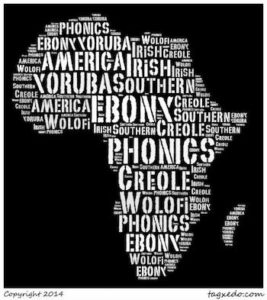
This date from 1973 celebrates “Ebonics,” sometimes called Black English.
This word combines "ebony" and "phonics" and was intended to describe the language of people of Black African ancestry in North America and West Africa. It emphasizes African roots; since 1996, it has emphasized independence from (standard) English.
The initial use of "Ebonics" was by psychologist Robert Williams in a dialogue with Ernie Smith at a conference on "Cognitive and Language Development of the Black Child" in St. Louis in 1973. Two years later, the word appeared within the title and text of a book edited and co-written by Williams, "Ebonics: The True Language of Black Folks." Some writers stress how the term speaks for a view of the language of African Americans as African rather than European.
Ebonics did not appear in the second edition of the Oxford English Dictionary, published in 1989, and linguists did not use it. The term was unpopular among those who agreed with the reason for coining it. It is used very little, even within the Ebonics book, in which "Black English" is the far more familiar name.
John Baugh claims that its Afrocentric supporters use the term Ebonics in four ways. Two refer to the languages of the African Diaspora as a whole. Two others correspond to English: one "is the equivalent of Black English and is considered a dialect of English," the other "is the antonym of black English and is considered to be a language other than English."
In 1996, the term became widely known in America after the Oakland School Board used it to recognize the primary language of many African American children attending school and to help teach Standard English. Since then, Ebonics has become little more than an alternative term for African American Vernacular English, emphasizing its African roots and independence from English.
Center for Applied Linguistics
4646 40th Street NW,
Washington DC 20016-1859,
Main number 202-362-0700,